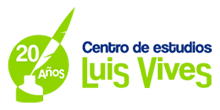Hello, #Vivers! Many of our Selectivity students are going to receive, in the coming days, the scores for the university entrance exams that you have recently taken. From the academy, we want to explain to you what you should know if you decide to request a review of the Selectivity exam, both EvAU EBAU and PCE UNEDasiss, in any of the subjects.
On some occasions, it happens that the grade you have obtained is considerably lower than what you expected. We must keep in mind that for an answer to obtain maximum score, it must comply with all the official content required in the question. In addition to complying with correct spelling, calligraphy and presentation.
Review dates for the EvAU/EBAU and PCE UNEDasiss Selectivity exams
Exam review dates EvAU/EBAU Selectivity in Madrid they are usually the days after the grades are published (check the admission calendar to the university of the Community of Madrid).
The review dates of the exams of the Selectivity PCE UNEDasiss It will be three days after the publication of the grades. The review request will be made from the UNEDasiss user panel, for the subjects that the student desires.
If you request a review, you should know that your answers will be corrected by a second specialist, different from the one who evaluated your test in the first correction. The final result of your exam will be the arithmetic average of the two grades obtained in each correction.
However, if there is a difference of two or more points between both corrections, the test will be corrected by a third specialist. The final grade will be the arithmetic mean of the three values.
In the Selectivity exam review, it is also verified that your answers meet all the general and specific correction criteria, and that there are no calculation errors in the assignment of the final grade. It is very important that you keep in mind that an exam review in Selectivity can raise or lower your grade.
object lesson
Let's imagine that you get a 4 on your Mathematics II exam, and you ask for an exam review.
First assumption:
A second teacher corrects your exam, and assigns you a grade of 5. Your final grade will be the arithmetic mean of both grades: (4+5)/2 = 4,5.
Second assumption:
A second teacher corrects your exam, and assigns you a score of 7. Since the difference is two points or more compared to the first correction, a third specialist corrects your test and assigns you a score of 4. The arithmetic mean of the three grades will be (4+7+4)/3 = 5. That will be your final grade.
We hope we have helped you understand the review process for the EvAU, EBAU and PCE UNEDasiss Selectivity exams. If you still have any questions, do not hesitate to contact us. You can do so by writing us an email to academia@luis-vives.es, using our form contact or sending us a WhatsApp. Also, we hope that it is not necessary for you to ask for it. In any case, good luck to all of you!







